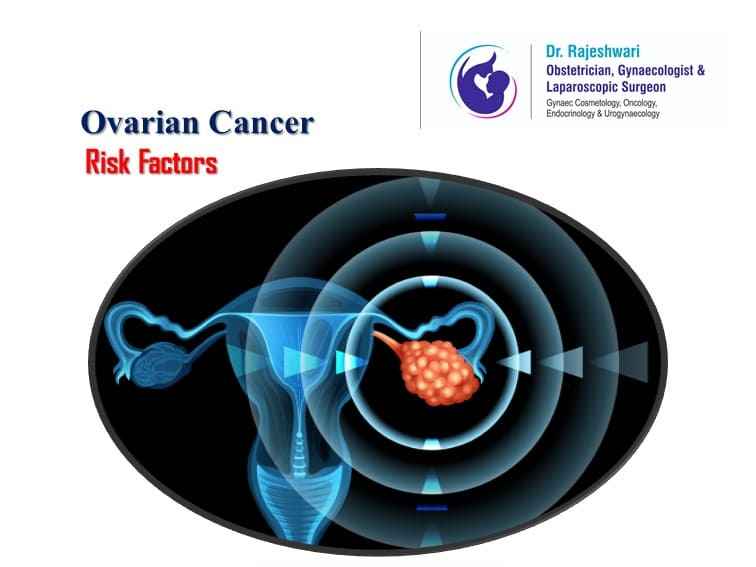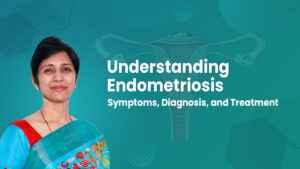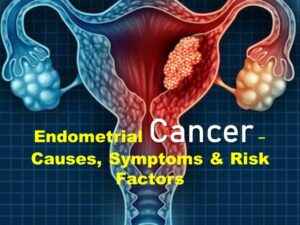Ovarian cancer is the third most commonly detected cancer in Indian women after breast and cervical cancers.
The risk of developing ovarian cancer during the lifetime is nearly about 1% which means – 1 in every 100 women is at risk of developing ovarian cancer during her lifetime.
The risk in a woman increases further with a strong personal and familial history of ovarian cancer.
The first and foremost factor regarding ovarian cancer in India is “Late Diagnosis”. It is the most common scenario in India. Ovarian cancer is often diagnosed in the III or IV stages of cancer. Owing to the late diagnosis in almost 60% of the cases, the 5-year survival rate for ovarian cancer in India is only 45%.
Though late detection is the most challenging aspect, a better understanding and knowing the personal risk is indispensable.
Ovarian Cancer is Hereditary
Ovarian cancer risk factors: BRCA1 and BRCA2 genes increase the risk of ovarian cancer by around 35% to 65% if a woman carries these inherited genes. Women who are at higher risk of ovarian cancer can avail genetic tests which will help in screening the risk of developing ovarian cancer.
Ovarian Cancer Symptoms
In the majority of the cases – especially during the early stages – symptoms may or may not be present. Symptoms can manifest at any stage of the disease – but, mostly, symptoms tend to develop at advanced stages of cancer. This happens mainly due to the tumour growth putting pressure on the bladder, uterus and rectum. Sometimes symptoms appear non-specific – even during the advanced stages of cancer.
The symptoms look quite familiar to many women – and therefore, they tend to ignore them. Constipation, indigestion, nausea, lack of appetite, bloating, abdominal cramping, lower back pain or pressure in the pelvis leading to pain; look quite familiar.
The other symptoms associated with ovarian tumours include frequent urination, feeling full quickly after beginning to eat; unexplained exhaustion, distension of abdomen or increased abdominal girth; menstrual changes; painful sex and unexplained weight loss.
What precautions should women take?
A majority of women seem to attempt first-line treatments or resort to some basic treatments. When symptoms do not respond to such treatments or when the symptoms persist for long or continue more irrespective of treatment, then consult a gynaecologist as the symptoms could be the warning signs of ovarian cancer.
Personal Risk of Ovarian Cancer – Knowing it is Very Important
Knowing the personal risk of ovarian cancer is very important for every woman on this planet – The reason: ovarian cancer is the most challenging cancer to diagnose – and a proper screening test is lacking for the detection of ovarian cancer at an early stage.
The best way to detect ovarian cancer at an early stage is a better understanding of the risk factors associated with it.
Let us understand the level of risk any woman can have. To be more precise, the levels of risk slightly above average, moderate and high.
Women Slightly above average Risk
- Women with a past history of infertility problems
- Women with previous unsuccessful pregnancies
- Those who underwent treatment or used medicines to get pregnant
- Women who had a past history of endometriosis
- Those who took HRT to manage menopausal symptoms
- Women who have had a past history of breast cancer after age 40.
Women Falling Under the Moderate Risk Category
- First-degree relatives – mothers, sisters or daughters with a previous history of ovarian cancer falls under this category.
- Women who had developed breast cancer before age 50.
- Those women whose first-degree blood relatives with a history of ovarian cancer at any age or breast cancer before 50 years of age.
High Risk
- Those who never got pregnant
- Women who took Estrogen for more than 10 years
- Lynch syndrome increases the risk of developing uterine, breast and ovarian cancer in women
- Women who underwent genetic testing and results showed changes in BRCA1 and BRCA2 gene sequence.
- Coming in the high-risk category are at increased risk of developing ovarian and breast cancer.
The Overall Risk for ovarian cancer
- Main: A strong family History
- Overall gene-related risk: 15%
- The risk associated with a gene mutation in the BRCA1 gene: 40%
- The risk associated with a gene mutation in the BRCA2 gene: 20%
- Other risk factors: Early menstruation (menarche) and late menopause
- Infertility
- Advancing Age
- Endometriosis
- Obesity
- Hormone replacement therapy after menopause
Bottom Line
You should consult your gynaecologist if you experience any abdominal or pelvic symptoms or any other symptoms unrelated to any other diagnosed condition. If you notice that your abdominal issues or indigestion is not improving with lifestyle measures and dietary changes; and even your back pain doesn’t seem to improve with rest and other home remedies, then make an appointment with your gynaecologist.




